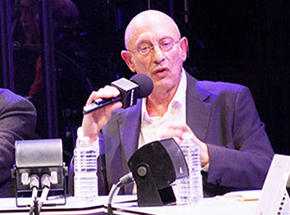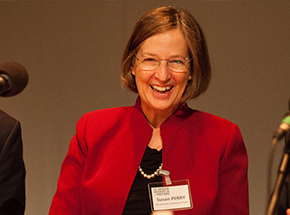- About AUP
- History of AUP
- Mission & Core Values
- Vision and Leadership
- AUP Recognition
- Alumni Success
- Campus Development
- Arts at AUP
- Policies & Guidelines
- Academics
- Undergraduate
- Graduate Programs
- MA in Diplomacy and International Law
- MA in Global Communications
- MSc in Human Rights and Data Science
- MA in International Affairs
- MA in International Affairs, Conflict Resolution, and Civil Society Development
- MSc in International Management
- MSc in Strategic Brand Management
- Find Your Thesis Advisor
- Previous Programs
- Cultural Program
- Faculty
- Summer School
- Research Centers
- The Center for Critical Democracy Studies
- The Center for Writers and Translators
- The George and Irina Schaeffer Center for the Study of Genocide, Human Rights and Conflict Prevention
- The Joy and Edward Frieman Environmental Science Center
- The Center for Media, Communication & Global Change
- Departments
- Academic Resources
- Academic Affairs
- Academic Calendar
- Academic Resource Center
- Library
- Registrar's Office
- Teaching and Learning Center
- Employer Network
- Accessibility & Accommodation Services
- Quai D'Orsay Learning Commons
- Paris as Classroom
- ACE Center
- Admissions
- Student Life
- Campus
- Get Involved
- Paris
- Support Services
- Student Development Help Desk
- Student Accounting Services
- Student Immigration Services
- Student Grievance Procedure
- Accessibility at AUP
- Diversity and Inclusion
- Health & Well-being
- Digital Student Handbook
- News
- Events
- AUP Giving
- Housing Offer for 2024-2025
- Housing | Spring 2024
- IRIS Project
- IT Services
- Alumni
- About AUP
- History of AUP
- Mission & Core Values
- Vision and Leadership
- AUP Recognition
- Alumni Success
- Campus Development
- Arts at AUP
- Policies & Guidelines
- Academics
- Undergraduate
- Graduate Programs
- MA in Diplomacy and International Law
- MA in Global Communications
- MSc in Human Rights and Data Science
- MA in International Affairs
- MA in International Affairs, Conflict Resolution, and Civil Society Development
- MSc in International Management
- MSc in Strategic Brand Management
- Find Your Thesis Advisor
- Previous Programs
- Cultural Program
- Faculty
- Summer School
- Research Centers
- The Center for Critical Democracy Studies
- The Center for Writers and Translators
- The George and Irina Schaeffer Center for the Study of Genocide, Human Rights and Conflict Prevention
- The Joy and Edward Frieman Environmental Science Center
- The Center for Media, Communication & Global Change
- Departments
- Academic Resources
- Academic Affairs
- Academic Calendar
- Academic Resource Center
- Library
- Registrar's Office
- Teaching and Learning Center
- Employer Network
- Accessibility & Accommodation Services
- Quai D'Orsay Learning Commons
- Paris as Classroom
- ACE Center
- Admissions
- Student Life
- Campus
- Get Involved
- Paris
- Support Services
- Health & Well-being
- Digital Student Handbook
- News
- Events
- AUP Giving
- Housing Offer for 2024-2025
- Housing | Spring 2024
- IRIS Project
- IT Services
- Alumni
Featured Course
The Hague Practicum
International Justice Practicum at The Hague
Related Graduate Programs :
Every summer, The American University of Paris sends a select group of graduate students to The Hague, a dynamic international hub in the Netherlands, as part of a credit-receiving practicum in our MA in Diplomacy and International Law. While at The Hague, students have the opportunity to experience first-hand the activity of international courts, such as the International Court of Justice and the International Criminal Court, or ad hoc tribunals, such as the Kosovo Specialist Chambers or the Special Tribunal for Lebanon. The practicum consists of one week of preparatory lectures at AUP at the start of the summer session followed by a one-week visit to The Hague, which includes 36 hours of onsite expert briefings and trial observation at the international courts.
In the week before visiting The Hague, students are exposed in the AUP classroom to various theoretical and practical elements of international law, taught by expert judges and prosecution lawyers from The Hague. Emily Burch, a student in the program, says: “In just a few days, we were exposed to a range of law we wouldn't be otherwise. For example, I had wanted to know more about the Law of the Sea and we covered it on the first day. It's a lot of information all at once, but it’s all important to understand.” The theoretical in-classroom preparation is enhanced and complemented by the trip, where students have the opportunity to see complex legal theories being applied at the courts in The Hague.
Talking with people who actually work at these places was a great way to finish off the first two semesters. We were able to ask tough questions at many of the locations. You don't get that kind of interaction through research or emails.
The oldest of these courts, the International Court of Justice (ICJ), is a judicial organ of the United Nations (UN) and settles disputes between member nations and issues opinions to various UN branches and agencies. The newer International Criminal Court (ICC) is an intergovernmental organization and international tribune with the jurisdiction to prosecute individuals for international crimes of genocide, crimes against humanity and war crimes. At these two courts, students are plunged into the world of international law where, as Emily says: “We talk about the viability and legitimacy of these courts and many of my classmates are interested in the decisions handed down for different reasons. For example, some classmates are focused on victims’ rights, some are strictly interested in the legal process, while some are looking at the courts as they relate to sovereignty.”
Another student taking part in the practicum, Noé Sainderichin, is considering a career in the French Ministry of Foreign Affairs. According to Noé, the topics covered in the practicum will prove invaluable in his professional life. “My future career in the French foreign affairs service,” he says, “requires a knowledge of key issues and tenets of international law and institutions by essence.” Noé came away from his time in the practicum with an expanded, nuanced view of international law. “It is a constantly evolving field with a rich history and very specific issues relative to – among other things – application, procedure, and the influence of political concerns on judicial decisions, which is not necessarily the case in domestic law.”
Meanwhile, Emily also discovered the benefits of having first-hand experience of institutions she had learned about in class. “It was wonderful to see places we've studied in person. Talking with people who actually work at these places was a great way to finish off the first two semesters. We were able to ask tough questions at many of the locations. You don't get that kind of interaction through research or emails.”
Find out more about the MA in Diplomacy and International Law program
Related
-

Professor Golub
Faculty
Read MoreProfessor Golub
Faculty
I found it very congenial at AUP...the liberal arts system offered an ideal environment for interactive learning.
-

Visual History Archive
Student & Faculty Collaboration
Read MoreVisual History Archive
Student & Faculty Collaboration
Examine the testimonies of genocide victims to analyze how deterrence functions in wartime.
-

Professor Perry
Faculty
Read MoreProfessor Perry
Faculty
Professor Susan Perry



